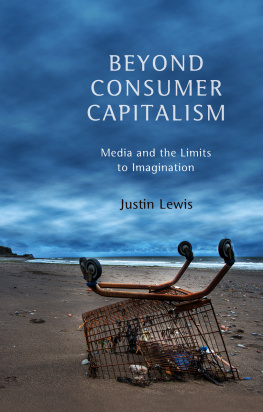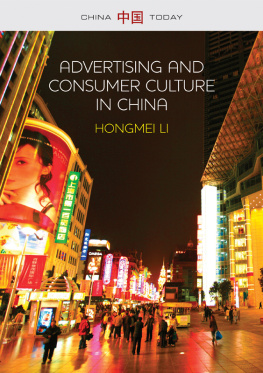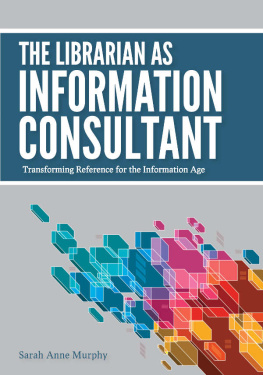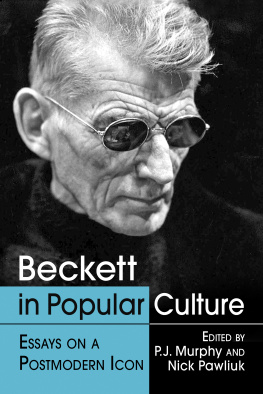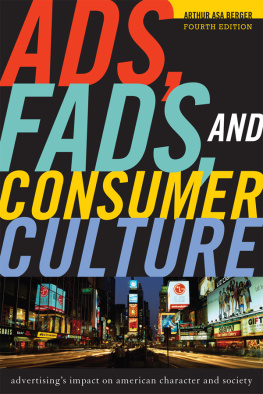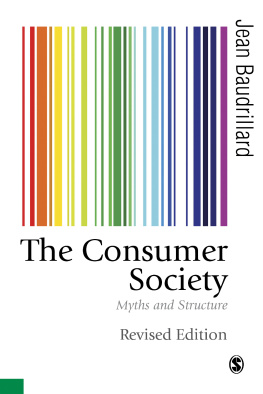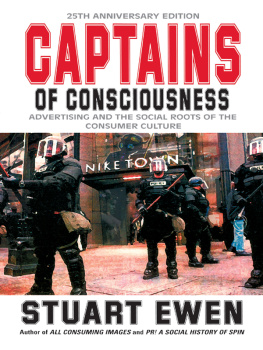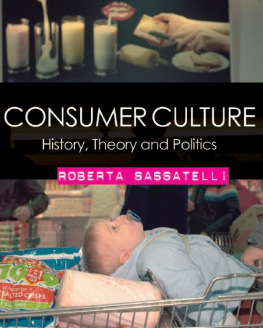SAGE was founded in 1965 by Sara Miller McCune to support the dissemination of usable knowledge by publishing innovative and high-quality research and teaching content. Today, we publish over 900 journals, including those of more than 400 learned societies, more than 800 new books per year, and a growing range of library products including archives, data, case studies, reports, and video. SAGE remains majority-owned by our founder, and after Saras lifetime will become owned by a charitable trust that secures our continued independence.
Los Angeles | London | New Delhi | Singapore | Washington DC | Melbourne
Copyright 2017 by SAGE Publications, Inc.
All rights reserved. No part of this book may be reproduced or utilized in any form or by any means, electronic or mechanical, including photocopying, recording, or by any information storage and retrieval system, without permission in writing from the publisher.
All trademarks depicted within this book, including trademarks appearing as part of a screenshot, figure, or other image are included solely for the purpose of illustration and are the property of their respective holders. The use of the trademarks in no way indicates any relationship with, or endorsement by, the holders of said trademarks.
FOR INFORMATION:
SAGE Publications, Inc.
2455 Teller Road
Thousand Oaks, California 91320
E-mail: order@sagepub.com
SAGE Publications Ltd.
1 Olivers Yard
55 City Road
London, EC1Y 1SP
United Kingdom
SAGE Publications India Pvt. Ltd.
B 1/I 1 Mohan Cooperative Industrial Area
Mathura Road, New Delhi 110 044
India
SAGE Publications Asia-Pacific Pte. Ltd.
3 Church Street
#10-04 Samsung Hub
Singapore 049483
Acquisitions Editor: Jeff Lasser
Editorial Assistant: Alex Croell
Production Editor: Veronica Stapleton Hooper
Copy Editor: Gillian Dickens
Typesetter: Hurix Systems Pvt. Ltd.
Proofreader: Lawrence Baker
Indexer: Jean Casalegno
Cover Designer: Candice Harman
Marketing Manager: Kara Kindstrom
Printed in the United States of America
Library of Congress Cataloging-in-Publication Data
Names: Wiedenhoft, Wendy A., author.
Title: Consumer culture and society / Wendy Wiedenhoft Murphy.
Description: Los Angeles : SAGE, [2017] | Includes bibliographical references and index.
Identifiers: LCCN 2016010157 | ISBN 9781483358154 (pbk. : alk. paper)
Subjects: LCSH: Consumption (Economics)Social aspects. | Consumption (Economics)United StatesSocial aspects. | Consumers. | Consumer behavior.
Classification: LCC HC79.C6 W535 2017 | DDC 306.30973dc23 LC record available at https://lccn.loc.gov/2016010157
This book is printed on acid-free paper.
16 17 18 19 20 10 9 8 7 6 5 4 3 2 1
Foreword and Acknowledgments
My interest in consumer culture and society came about inadvertently when I was randomly assigned to work with a group to present The Theory of the Leisure Class in an undergraduate social stratification course. I had never heard of Thorstein Veblen before but found his description of conspicuous consumptionwritten in 1899quite relevant to the 1990s. It seemed evident to me that individuals continued to purchase items to display their wealth and status, particularly through brands. However, I was not entirely convinced about his argument that the elite created fashions, which simply trickled down the class hierarchy. On one hand, I thought that what the Frankfurt school called the culture industry was probably more influential than the elite when it came to popularizing consumer goods. On the other hand, I witnessed how certain fashions and styles trickled up from the working class and youth subcultures and became appropriated by the elite and the culture industry. These reflections became the basis of my masters thesis, a semiotic analysis of how Dr. Martens boots trickled up from the working class to youth subcultures to mainstream consumer culture. They also influenced my decision to pursue a doctorate at a university with a strong theory program and at least one faculty member who specialized in consumption. The latter was a challenge as few academics thought consumer culture and society was a serious topic to study at the time. However, I found a home at the University of MarylandCollege Park, where I was fortunate to take courses and work on projects with George Ritzer and Richard Harvey Brown. During my doctoral studies, I was introduced to comparative historical sociology and, with the mentoring of Meyer Kestnbaum, was able to successfully bridge my interest in consumer culture with social movements and voluntary associations, resulting in my dissertation on how the American Federation of Labor and the National Consumers League used boycotts and buycotts to politicize consumption during the Progressive Era.
Today, the study of consumer culture and society is thriving across a variety of disciplines, including sociology, history, political science, communications and media studies, anthropology, and economics. The strength of this growth is remarkable given that 20 years ago, few academic books had been published in this area, especially in the United States. Considering the increasing interest in this field of study, I thought it would be an opportune time to write an introductory textbook on consumer culture and society. My primary intention is to introduce undergraduates to the wide array of challenges and possibilities that transpire from living in a mass consumer society. In addition, I have tried to accurately examine and organize the theories and research of a large number of scholars from a variety of disciplines in one place. My hope is that this textbook will encourage others to create and offer more courses on consumer culture and society to maintain the momentum in this field.
I would like to thank my editor at SAGE, Jeff Lasser, for his willingness to take on this project and help me through the entire processfrom the initial proposal stage to the completion of the final draft. I would also like to express my appreciation to Veronica Stapleton Hooper for her assistance during the book production process, Gillian Dickens for her careful copyediting, and Alex Croell for her administrative and editorial work. The anonymous reviewers of my proposal, sample chapters, and first draft offered insightful comments that helped make this a better book. In addition, I am grateful to John Carroll University for awarding me a research grant to work on this project and George Ritzer for his letter of support. For the past 5 years, I have been fortunate to co-teach courses on Consumer Culture and Politics and Global Debt and Justice in the honors program and the sociology and political science departments at John Carroll with Mindy Peden, who deserves an extra special shout-out for encouraging me to pursue this project. Several students also deserve acknowledgment, including Katie Kavulic for her extensive annotated bibliography on food, culture, and politics, and Owen Reilly and Sara Sternbach for helping me proof the bibliography. Finally, I would like to thank my mother, who has shared many shopping trips with me over the years, my brother, who has tried to keep me current with digital trends and marketing campaigns, and Jim Murphy, who has patiently listened to me talk about consumer culture and society ever since we were undergraduates.





